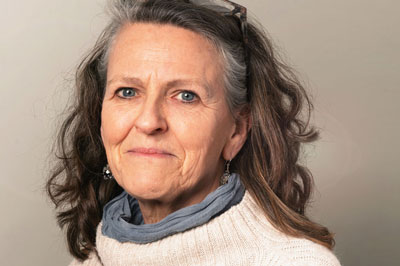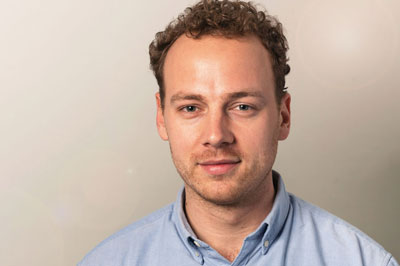‘I wanted to go back to normal’
‘I just wanted to be Sanne again, rather than a patient,’ says Sanne (25) about the period in which she received psychological care and aftercare for cancer patients. A psychologist there told her about the Untire app, which gave her practical tools to help her manage her fatigue.’
Whilst doing her post-run stretching, the sporty 20-something woman felt a lump the size of a marble in her armpit. Her GP didn’t suspect anything serious, but nevertheless referred Sanne for a scan at the hospital where she worked.
She had the ultrasound while she was at work and returned to collect the results. She didn’t suspect anything was wrong, and so she was shocked when she saw the face of the doctor who looked at the scan. ‘He told me to make an appointment with an oncologist. Even as I sat with my father in the consulting room, I couldn’t quite imagine that something bad was going on.’
The oncologist thought that Sanne had a lymphoma or breast cancer with metastases or some kind of autoimmune disease. After a range of tests, it turned out to be a rare form of Hodgkin’s lymphoma.
An understatement
She had surgery and then received radiation therapy for three weeks. Before the treatment, she thought it was going to be a piece of cake. ‘I was young and exercised regularly. I had heard that radiotherapy could make you tired, but I didn’t expect the extent to which this would be an understatement.’
She already noticed that her energy level was declining while she was receiving radiation therapy. She didn’t think much of it at first. ‘I thought it was because of the tension that was being released.’ But when she wanted to go back to work, she was sorely disappointed. ‘I started working two hours per day, but even that was too much to manage for a long time,’ she says. ‘I sometimes came home in tears.’
‘You don’t have to think – you get exercises every day’
It was only after six months that she managed to work 16 hours. A year later, she could work four days again. ‘The difficult thing about fatigue is that people can’t see that you have it. Your treatment is finished and everyone around you thinks it’s all over. But that’s when your recovery is only just beginning.’
Sanne ended up receiving psychological support to learn how to deal with the impact of cancer. Her psychologist there told her about Untire, a tool that would help her manage her fatigue.
Sanne likes Untire’s daily program. You don’t have to think, you get exercises every day and topics that you can work with. She also enjoys the meditation exercises. They were especially useful while she was building up her working hours again. It was very important to me that I had a moment to rest.’
Conscious focus
Sanne benefited less from the physical exercises Untire offers. ‘Since I do a lot of exercise, I didn’t lose any strength in my muscles. But I can imagine that other people would benefit from it, and the same goes for the online diary that you can keep and the contact with other cancer patients. That can help people enormously.’
Untire is still installed on her phone but she only uses it occasionally. ‘[I use it] for short meditation exercises when I’m feeling a bit drained after a busy weekend. You focus very consciously on your body, on what you feel, on your thoughts and then on your breath.’
An AYA clinic
Sanne is still not completely back to normal. ‘When I have a hockey match, I’m completely worn out in the evening. But I do manage to have dinner with someone during the week. I sometimes have a rest during the day, but not often. I’m also less irritable and I recently got a nice new job.’
She also helped her old employer set up an AYA clinic for young cancer patients. ‘They often have specific problems relating to work, fertility, sexuality or getting a mortgage. The aim of an AYA clinic is to ensure that any young cancer patient with questions about these kinds of issues can see a specialist nurse.’
All in all, Sanne is very satisfied with how things are going at the moment. ‘I have to plan everything carefully, but that’s now become automatic. I can actually do everything I want to.’





